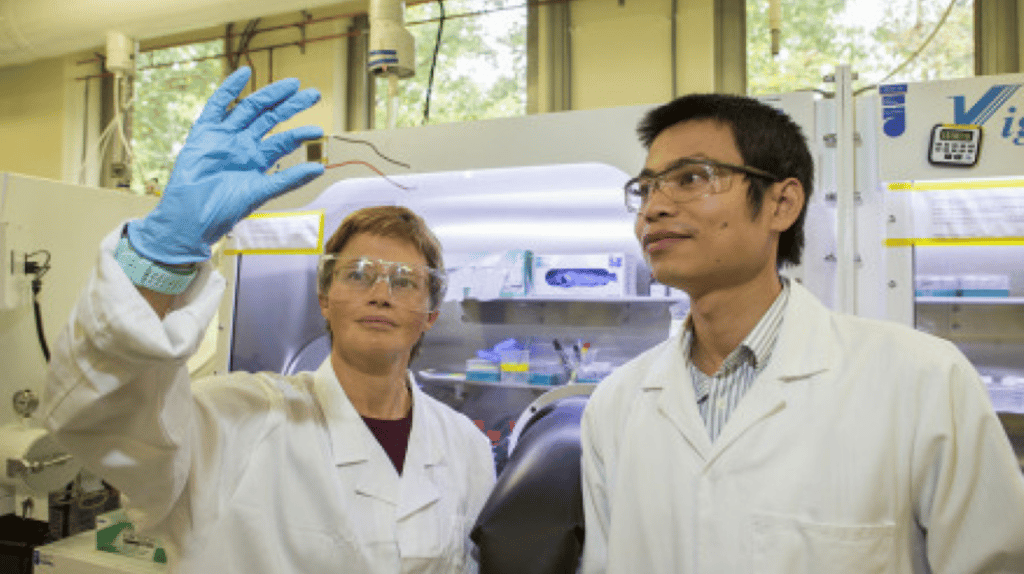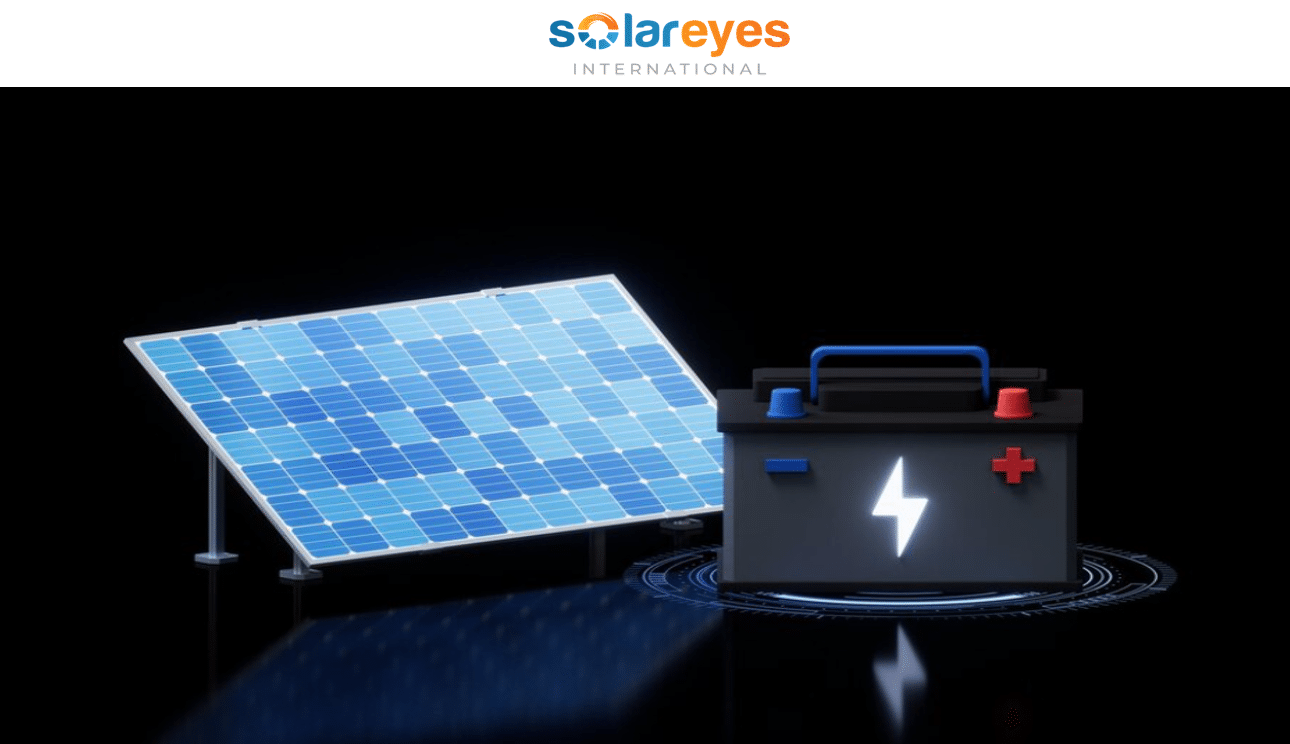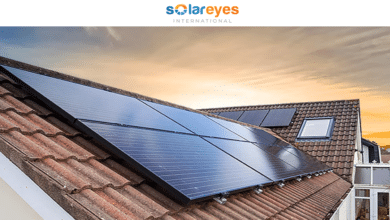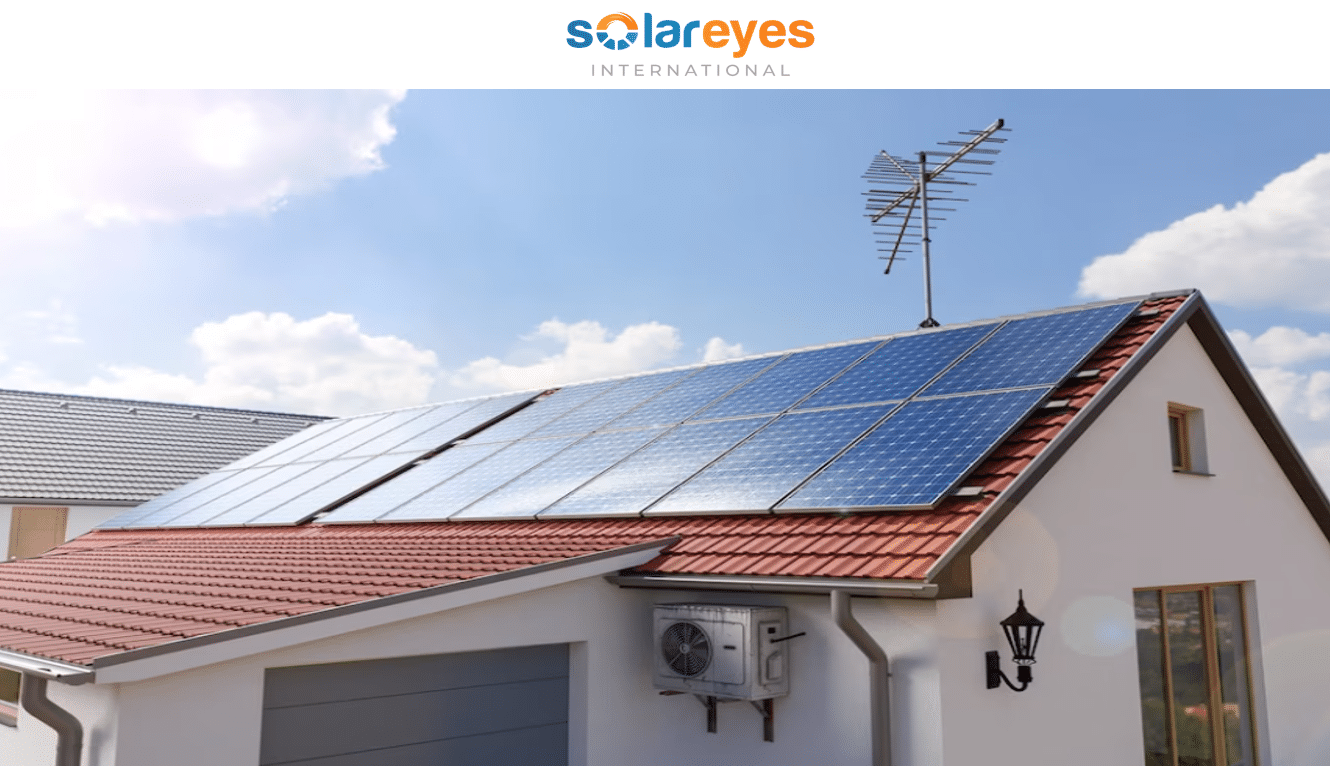Australian Researchers Surpassed 30% Efficiency with Tandem Perovskite-Silicon Solar Cell

Australian scientists have recently developed a tandem perovskite-silicon solar cell that has surpassed 30% efficiency.
All You Need to Know About Australia’s Solar Sector
This is the highest efficiency achieved by this type of device to date, and could have a major impact on the renewable energy industry.
The research team at Australian National University (ANU) used a perovskite-based top cell to boost the efficiency of silicon-based cells. The team published their work in ADVANCE ENERGY MATERIALS.
Perovskite solar cells are promising due to their low-cost material, ease of fabrication, and high-efficiency potential.
The top cell is composed of a thin film of perovskite material that absorbs light of higher energy levels than the bottom silicon cell.
This allows for more efficient conversion of solar energy into electricity.
The team tested multiple cell configurations and found that combining a perovskite top cell with a silicon bottom cell was the most effective configuration.
They also tweaked the design of the top cell to further optimize the efficiency of the cell.
HOW TO START A SOLAR COMPANY – do these 6 things and make money through solar
The team achieved an efficiency of 30.3%, which is a world record for this type of device. This achievement could also lead to other breakthroughs in renewable energy production and storage.
Researcher involved in this novel research, The Duong said: “With these tandem solar cells, the perovskite top cell can efficiently absorb the blue light and transmit the red light to the silicon bottom cell, producing significantly more energy from sunlight than each individual device”.
All You Need to Know About Australia’s Solar Sector
The research team plans to continue their work and further optimize the efficiency of the tandem cell, as well as investigate the potential for scaling up the device for commercial use.
It is exciting to see that Australian scientists are leading the way in the development of renewable energy technologies. This is the first step towards a cleaner, more sustainable future.
MYTHS AND FACTS ON SOLAR ENERGY
What does this mean to Australia and the World
The development of this highly efficient tandem cell has far-reaching implications for Australia and the world.

For Australia, this technology could lead to a breakthrough in the provision of an affordable and clean source of energy.
Common Losses for Solar Installations: Understanding and Mitigating Them
The potential for scaling up the device for commercial use could open the door to low-cost renewable energy production and storage, leading to a more sustainable energy landscape with less reliance on fossil fuels.
On a global scale, this technology could increase the uptake of renewable energy around the world.
With the improved efficiency of the tandem cell, more countries could access affordable and reliable sources of clean energy, reducing their dependence on conventional sources of energy and making strides towards achieving global sustainability goals.
The development of this tandem cell also signals a shift towards more collaborative approaches to innovation.
The research team was composed of scientists from multiple disciplines, showing that cross-disciplinary collaboration can lead to bigger breakthroughs.
This could be a model for future collaborations between universities, governments, and private organizations in the pursuit of a more sustainable future.
Postdoc Researcher in Perovskite Solar Cells at Stuttgart University, Germany
FOLLOW US
Follow us on LINKEDIN, FACEBOOK, TELEGRAM GROUP and WHATSAPP.
*** ALSO CHECK: 12 CHALLENGES FACED BY SOLAR COMPANIES IN DEVELOPING COUNTRIES
HOW TO SIZE A SOLAR SYSTEM – 5 clear steps anyone can follow
HOW TO START A SOLAR COMPANY – do these 6 things and make money through solar
CALL FOR CONTRIBUTORS – SolarEyes International (fully remote)
10 Global Trends in the Solar Sector
The Future of Solar Energy in the US






